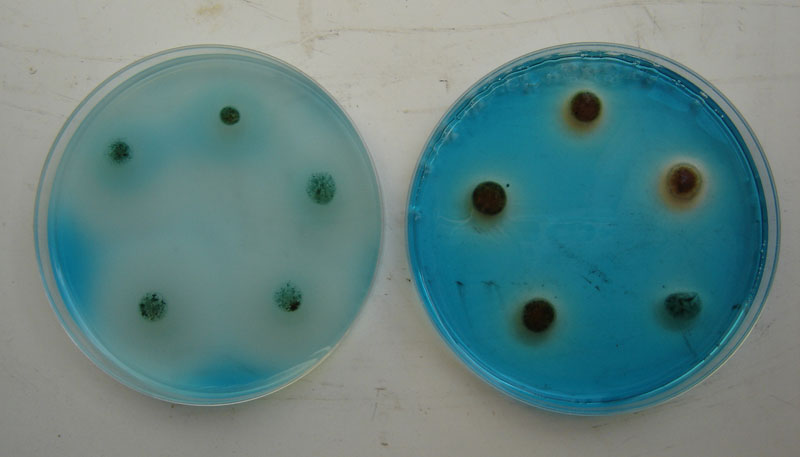Productivity increases in the poultry industry are becoming more difficult and the safe and effective delivery of vaccines and therapeutics is a key challenge. Improvements in the effectiveness of vaccines, diagnostics and therapeutics ultimately result in reduced reliance on antibiotics and chemicals in poultry production. Production of new-generation poultry health products and diagnostics, in collaboration with commercial partners, is of critical importance to poultry producers.
Dr Andrew Bean from CSIRO leads a CRC project, (Sub-Project 1.3.3) Development of IFN-lambda as an adjuvant and immune enhancer for in ovo use, and explains why this is important. “Adjuvants play an important role in the efficacy of vaccines, increasing the antibody response to a vaccine by boosting the response” he said. “However, the difficulty with using many of the existing commercially available adjuvants is that to help stimulate an immune response to a vaccine they can also cause inflammation and cell damage”.
Many existing adjuvants stimulate the production of certain cytokines when they cause inflammation and tissue damage. Andrew explained further, “Since one adjuvant alone is rarely optimal for all antigens, it is critical to have a selection of different types of adjuvants that function through immunomodulation and are able to modify the cytokine network (A process that often involves up-regulating certain cytokines and down-regulating others). So, by using the appropriate cytokine as an adjuvant, the boosting effect may be seen in the absence of dramatic cell damage, which obviously would be beneficial in areas such as livestock production”.
Andrew continued, “With our recent discovery of chicken IFN-lambda (ChIFN-lambda), studies have been performed to assess its cytokine adjuvant activity. We have shown that ChIFN-lambda protein increased antibody responses in chickens when administered with a vaccine antigen, approximately 5-fold on the primary response and over 10-fold in the secondary response, when administered compared to vaccination with antigen alone. This remarkable observation supports the concept that ChIFN-lambda may have the potential to augment an immune response when used as an adjuvant with a variety of vaccines. Similarly, this boosting effect may have the potential to allow a lower dose of antigen to be used, which may result in more cost effective use of vaccines”.
Andrew’s project therefore has four main aims;
- To optimise the protein expression of ChIFN-lambda via a thorough investigation of the most favourable expression conditions,
- To make a comparative analysis of the adjuvant potential of the ChIFN-lambda and develop the most appropriate conditions to effectively use this potential,
- To investigate various methods to analyse and develop the best possible adjuvant conditions for ChIFN-lambda when used in birds and ,
- An analysis of the potential for ChIFN-lambda to be used as an adjuvant in ovo will be made.
To date, different recombinant protein expression systems have been compared for production of ChIFN-lambda, resulting in the identification of two systems with commercial application. Both expression systems have successfully produced ChIFN-lambda that is biologically active in vitro. “A decision on which system to progress with will be dependent upon data derived from future milestones (e.g. dose titration studies) and cost of goods estimations” said Andrew.
“We are encouraged by evidence that ChIFN-lambda is also functionally active in vivo, as demonstrated by it eliciting a protective immune response against a commercially relevant poultry virus” he said. “More importantly, in vivo responses to ChIFN-lambda adjuvanted vaccine produced protective levels of antibodies suggesting these vaccinated animals could withstand virus challenge”. More data is required to determine the efficacy of ChIFN-lambda as an immune enhancer in ovo, which is the subject of current and future work over the next 18 months”.
The use of the natural cytokines as therapeutics or vaccine adjuvants has the potential to enhance Australia’s “clean and green” image when it comes to sustainable food production. In addition, the availability of these novel immunomodulatory molecules provides the poultry industry with products that will increase Australia’s preparedness against disease outbreak. This assists in solving the major challenge of achieving sustainable, ethical poultry production and maintaining a supply of healthy, and welfare conscious, poultry products.


